Trending
Opinion: How will Project 2025 impact game developers?
The Heritage Foundation's manifesto for the possible next administration could do great harm to many, including large portions of the game development community.
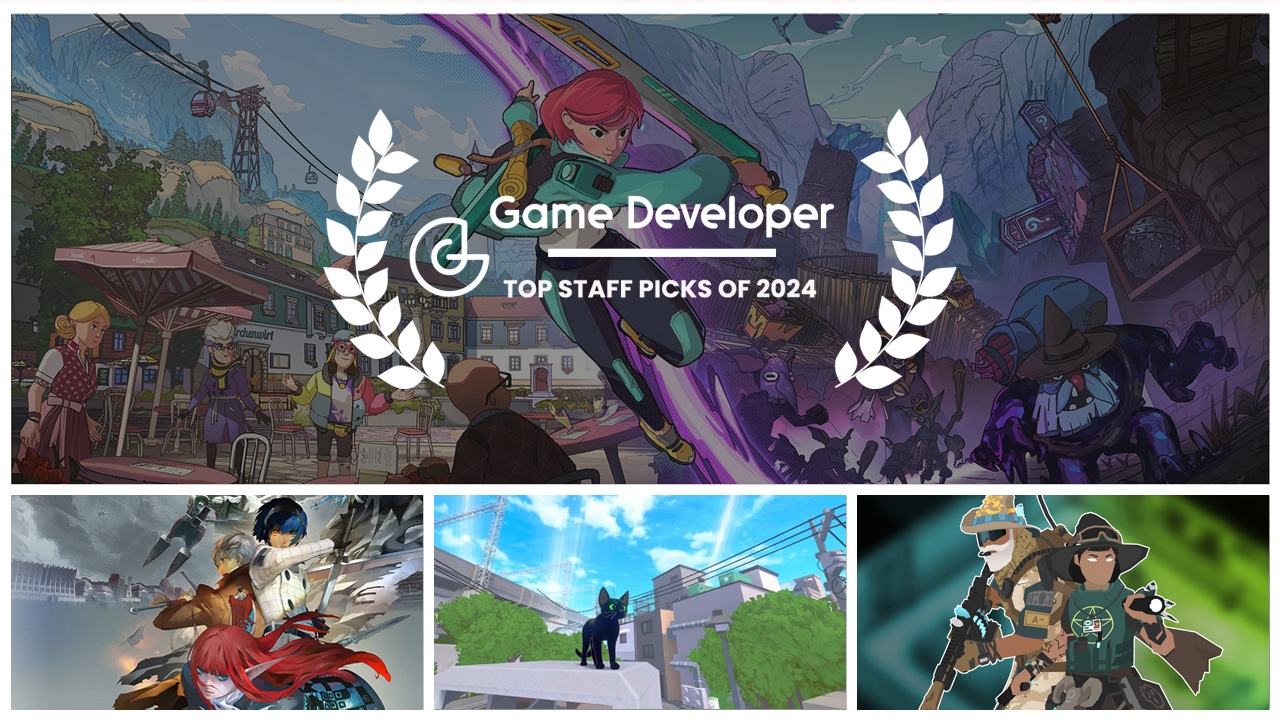
In 2024 I felt how I play games begin to change. Thanks to my Steam Deck I got more time with more games squeezed in while winding down my day or on long flights across the Atlantic. I spent less time on my PlayStation 5 and more time seeing our community's excellent work through the lens of a 1280x720 screen.
It’s a change driven by—and that drives—the circumstances in my life. I married my wonderful spouse, I dove more into my tabletop hobbies, and I worked weekends as a part-time games writer. But this change was driven by shifts in our industry too.
I played fewer big-budget games because there were fewer big-budget games to play, a consequence of brutal layoffs that are a symptom of long production cycles turning out fewer and fewer big budget games that struggle to make back their budgets.
The gap was filled by great games from smaller teams getting more product out faster, but those teams are also struggling to land funding to build great sequels. I also largely abandoned playing live service games, because the retention hooks and spending mechanics have gotten so intense that trying to casually play a favorite game like Apex Legends has become downright draining.
Change is constant, and in 2024, it was incessant. Often for the worse. It was made all the harder by an election that delivered power to a pack of weirdos and convicted felons keen to smash civil rights and rewrite the economic landscape. Our community knows it is in for challenging times as our strange fleet of ships is tossed about on stormy seas ahead.
Our task is to keep these ships afloat, and to keep ourselves warm in the bowels within. We do that with great work and care for those around us. The ten games I most loved this year were small comfort against the harsh wind, but they were indeed comfort—each a sign that we are surrounded by wonderful, creative peers worth fighting for when things look most dire.
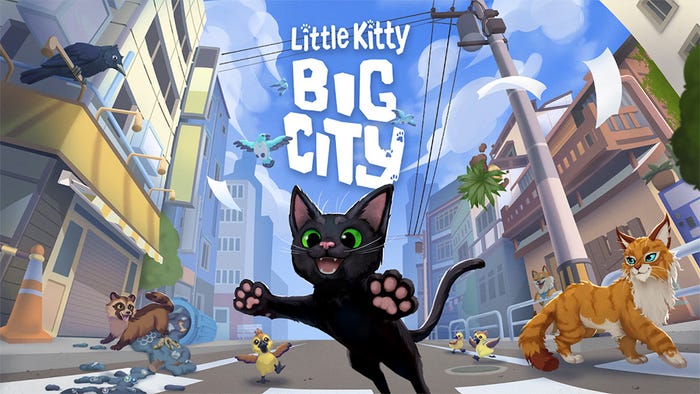
Image via Double Dagger Studio.
Of course I was going to play the game where you're a little kitty in a big city! But did I expect Double Dagger Studio's debut to be this good? to be this good? No! Little Kitty, Big City walks in the footsteps (pawsteps?) of games Adam Robinson-Yu’s A Short Hike, presenting players where a lovely little open world where every activity and interaction is juicy, surprising, and natural. It takes advantage of how players think cats should move through the environment and rewards them with a buffet of engaging encounters as the titular little kitty tries to find their way home.
It's a sandbox for cat lovers who want to pounce on birds, knock pots of banisters, and do a biiiiiiiig stretch. I love that this game has a bit of an edge about it, it embodies the duality of cat, that they can be incredibly cute and also gigantic pieces of shit. That playful gremlin energy is a great anchor point for interaction design, as it lets players wreak havoc on the world around them in a way normally accompanied by gunfire and violence.
But with no gunfire—just your little kitty claws—the stakes of the chaos becomes smaller and somehow more special.
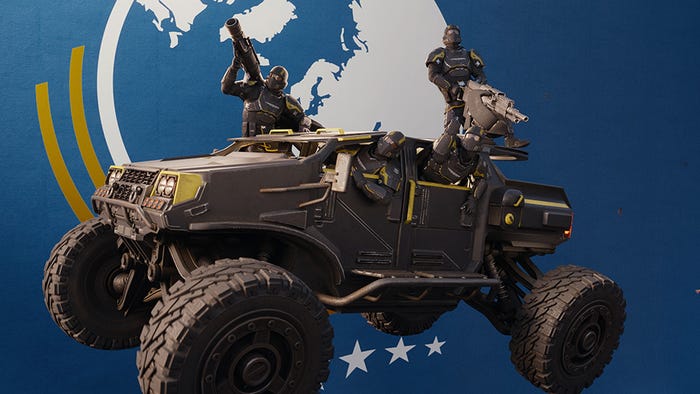
Image via Arrowhead Studios and Sony Interactive Entertainment.
I thought Arrowhead Games' live service Starship Troopers riff wouldn't do it for me. Boy was I wrong. Two days into my campaign against the bugs and bots I was screaming "FOR DEMOCRACY" while calling down orbital strikes and melting swarms of enemies with flamethrowers, pausing only to apologize to my spouse for leaving dropping a minefield in front of them.
This is a shooter that celebrates cooperative chaos and playfulness, not just individual fine-motor skills and monetization. There's a push-and-pull between "this is cool and awesome" and "this is stupid and I just died because my friend didn't warn me about the Arc Turret they set up in that trench" that humbles even the most skilled players.
Arrowhead also earns praise for the groundbreaking galactic campaign system (something I hope more devs make use of in the years ahead) and its concerted effort to respond to player feedback and get ahead of a live service labor crunch. Too many multiplayer games in the last few years have launched strong and burned out fast, and it seems the studio is willing to make big shakeups to keep its most successful game ever alive for a long time.
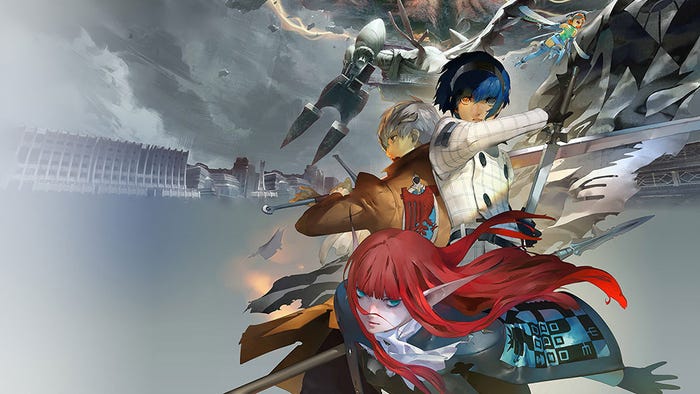
Image via Atlus/Sega.
I finished Metaphor ReFantazio after the 2024 presidential election, a timely test for a game that plays with the idea of how fantasy can inspire reality as a country searches for new leadership. The game's optimistic tone could have felt hollow in the wake of an election won by a man calling for a more violent, divided world, not the peaceful and unified one Metaphor's heroes dream of.
Atlus' new original game reminded me of a strength JRPGs have wielded since their early days—their ability to build settings and characters that work around the conceits and mechanics of a video game. Concepts like changing classes and fast-travel teleportation are all woven into the story in ways Western games tend to handwave off. It makes for a more spectacular world to play in, and makes every moment you have with the game a more authentic experience. The cast of misfits who join the player all left their mark on me in different ways—each an excellent fantasy archetype who must cast aside cynicism and pragmatism to pour their hearts out (literally?) in pursuit of a better world.
Metaphor avoids being saccharine by having its characters interrogate why "fantasy" is worth dreaming of, even when it seems so unattainable. In its final hours the protagonist must confront the fact the fantasy novel he's carried around is not a perfect inspiration for the world, that utopia is not an end state but a constant struggle. If the villain Louis is to be believed, the world is an inherently unfair place where equality can only be achieved by letting the strong rise to power and dominate the week, unbound by crumbling pillars that prop up institutions like the Sanctist Church.
The game cheekily gives players opportunities to give in to that worldview, and greet them with the same "game over" screen they'd see after defeat in battle. "Fantasy is ruined," it first declares. Then it's "Fantasy is dead," and "Fantasy is only fiction."
But when you make it to the end, Fantasy is not victorious—it merely "lives on."
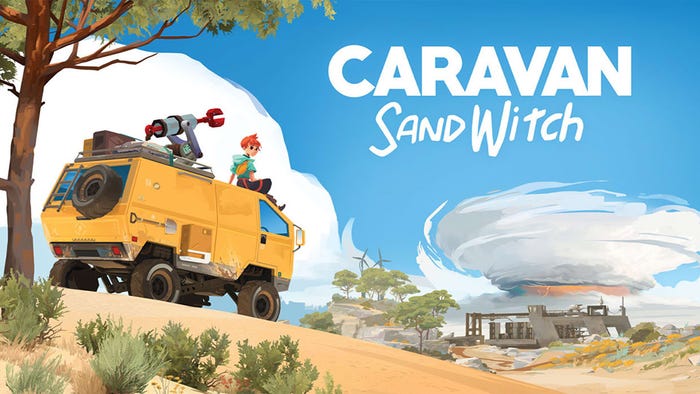
Image via Studio Plane Toast/Dear Villagers.
We're two for two this year on "excellent small open-world games from indie devs." Studio Plane Toast joined Double Studio with its take on the tiny open world game Caravan Sandwitch. Where Little Kitty, Big City acts as a scaled-down version of an immersive-sim type open world game like Dishonored or Death Loop, Caravan Sandwitch feels drawn from more conventional open-world design with "landmark" towers, unlockable abilities, and a more linear quest/sidequest flow.
But everything familiar is made new by the sense of imagination poured into this sci-fi game. Its grand sci-fi worldbuilding is anchored by the all-too-relatable tale of a young person returning home after a long time away. Plane Toast has also invested deeply in making every interactive element from the grappling hook, to scanning, to just driving your space van feel tight and compelling.
I'd gladly play 12 more games like Caravan Sandwitch and Little Kity, Big City in lieu of a massive open world extravaganza, and I hope larger developers can use these games as inspiration to make more quick-hit open worlds in the years ahead.
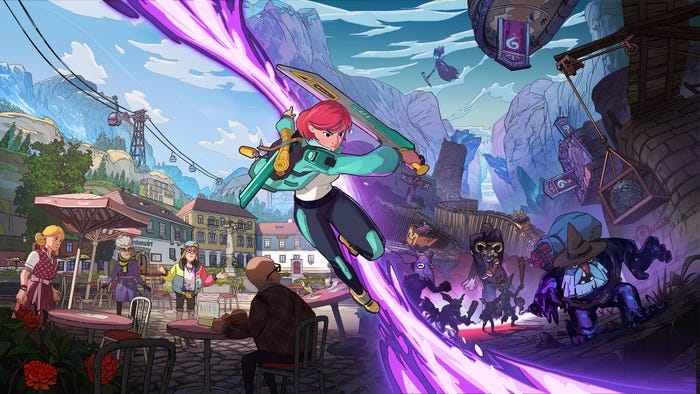
Image via Microbird Studio/Curve Games.
We are once again two-for-two on a particular game mechanic this year, as Dungeons of Hinterberg and Metaphor RE: Fantazio both use the Persona-inspired "social system" where players schedule out their adventuring against socializing with characters in the world.
Does Metaphor cast a shadow over Microbird Studio's indie adventure? No! Dungeons of Hinterberg is so distinct thanks not only to its unique focus on dungeon crawling and snappy combat, but also an unusual tale of a town overwhelmed by adventuring tourists. I've never seen a game with this kind of tale before, where fantasy enters our world and instead of a massive threat to all mankind, it's just something that turns a small Austrian town into the equivalent of Salzburg or Feldkirch.
Like Carvan Sandwitch, Dungeons of Hinterberg uses big gameplay ideas to make a small and personal experience. It's as much about burnout, class, and the weight of world-changing events as it is about killing monsters from beyond the void.
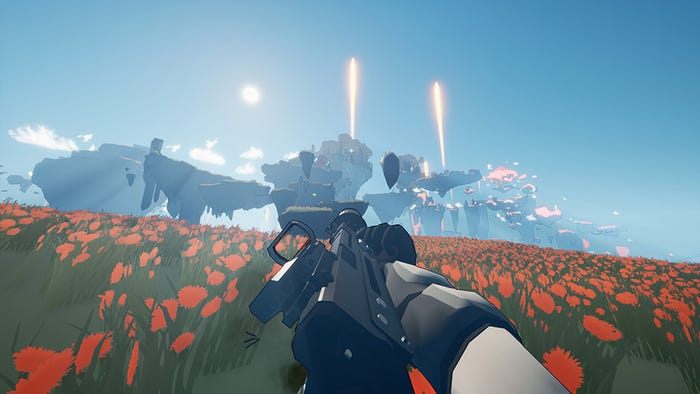
Image via Greylock Games Studio.
Alright enough with the sappy storytelling stuff let's talk Echo Point Nova a game whose plot is GET GUN and SHOOT ALL THE THINGS.
My god though is the shooting good. And the moving. The player character is a space marine with a grappling hook AND a high-powered hoverboard and 12 different guns and because of that it is perfect chaos. It's been ages since I played an FPS that so embraced velocity, and Greylock Studios has cut all the correct corners needed for an indie studio to make the most creative shooter of 2024.
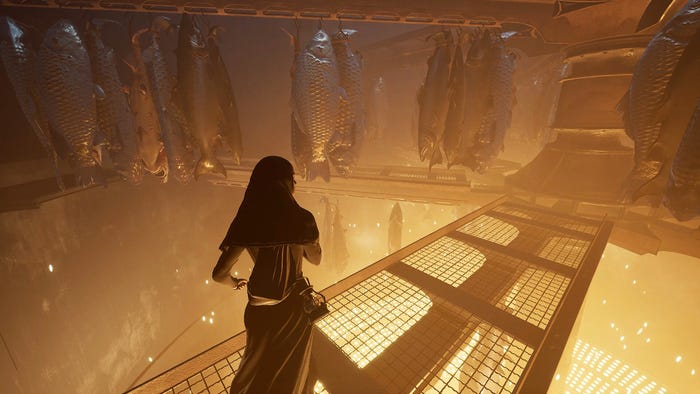
Image via Odd Meter/11-bit studios
The darkest and saddest game I played this year was Indika, a third-person adventure that should feel like The Last of Us or A Plague Tale but instead comes off like another entry in the canon of Russian literature. The game blends the absurd with the mundanely tragic, playing with video game form to tell the story of young nun cast out from her church and seeking redemption.
But she won't find redemption, because the world she's been born into is cruel, violent, and ruled by selfish men. The literal devil hangs over her conscience, egging her to give in to the same instincts, to put herself before others and pursue all her heart desires.
It's not a miserable game! It's funny, gonzo, and otherworldly, with sequences that took my breath away—the kind of game folks should play to unwrap their idea of what a game or game story "is."

Image via Ironwood Studios/Kepler Interactive.
The moment I knew I was in love with Ironwood Studios' Pacific Drive was at the point I was buzzing around the garage, repairing and upgrading my car, and I caught myself glancing at a display across the room to assess what parts I need to work on. "This is the most I have ever enjoyed a car-focused game," I realized.
And of course it was, because this game teaches players how to love a car the same way studio founder Alexander Dracott did when he was growing up in the Pacific Northwest. It's a vibe only made better by the help of an otherworldly "zone" setting where randomized elements out in the wild constantly put pressure on the player and their vehicle. This game is so special, it made me forget how much I hate owning a car in real life.

Image via Suspicious Developments
A turn-based tactics game with pointy-hatted wizards who wield guns, magic, and maces from Tom Francis’ Suspicious Developments? That sounds like a game for Bryant. I’ve followed Francis’ journey from games journalism to game development since I was in college, and I’m still blown away by how he and his colleagues pull out win after win with games where you elaborately build Rube-Goldberg machines to kick goons out of glass windows.
Tactical Breach Wizards is another great entry in the studios’ glass-breaking canon; a veritable feast for any designers who want to study how precise terrain and enemy placement can trick players into solving complex puzzles by making them believe they’re tactical experts. It’s made all the stronger by great writing delivered efficiently with simple animation and crunchy-sounding typewriter text. The story and gameplay work on a shared principle: solving complex problems becomes more rewarding when contrasted against slapstick comedy and timing.
Or in other words, if your game makes the player go “I’m a genius!” before pressing a button and blowing themselves up in the face, you’re probably doing something right.
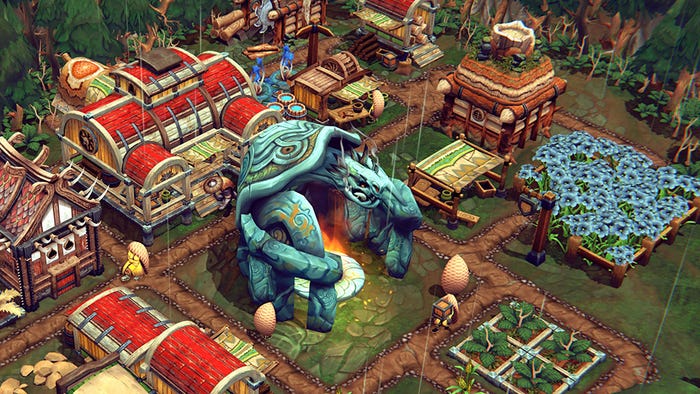
Image via Eremite Games/Hooded Horse.
Yes this game hit 1.0 in 2023 but it was after I'd prepped my GOTY list for that year so it still counts!!!
I lost so many hours to Against the Storm. I didn't know you could turn a citybuilder sim into a run-based roguelike but you know what? You can, and you can make it awesome, just like Eremite Games did.
This game brings such intense obsession out of me. I learned so many different ways to spin the storm-based plates and delighted at how it invited me to crank up the challenge. More rain! Longer storms! Greater food shortages! Throw any of it at me and I was ready to rally my harpies and lizardfolk into action.
There’s also something I loved about a game themed around surviving ever-intensifying storms and knowing taking on greater challenges was the only way to truly win. Every time I wrapped up a settlement, I stood agog at how the adversity of the mission had nudged me into making a more unique kind of town than I would have in a more sandbox-style environment like Cities Skylines. I love games that blend creativity and adversity in a single package. After enough time, players who see how the storm shapes their lives can begin to ask “should the Storm decide how I build my settlement, or will I decide for myself?”
I love how that sounds like some big statement of teaching creative liberation. Except the real lesson of Against the Storm is that the Storm will be all-too-eager to knock down your sandcastle and do the thinking for you. What will you do when the rain is pounding down on your window, the waters rise ever-higher, and morale craters to the earth. Will you adapt? Endure? Give in?
I’m not thrilled that I’ll be asking myself these questions heading into 2025 and beyond. I take quiet pleasure—maybe even hope—that it is in the nature of storms to eventually pass.
Thank you for reading senior editor Bryant Francis' top 10 Games of the Year! This article is one of many 2024 reflections hitting Game Developer this month, with more to come! For even more thoughts and insights on the best of 2024, check out our Game Developer’s 2024 Wrap-Up keyword to catch up on all our End of Year content.
Read more about:
FeaturesGame Developer's 2024 Wrap-Up: Top Games, Devs, and TrendsTop StoriesGame Developer EssentialsYou May Also Like